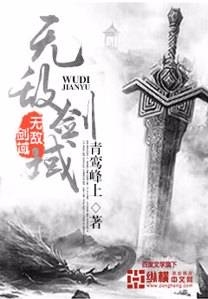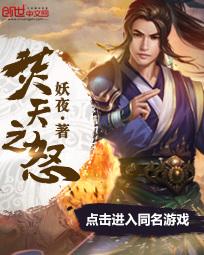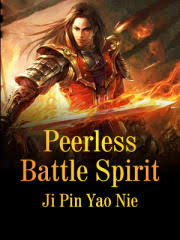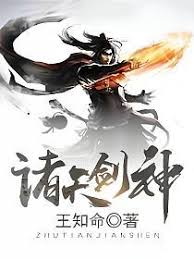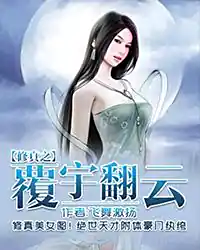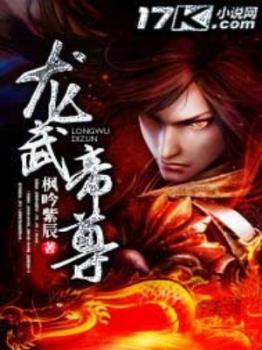The Story in 3 Sentences
A young man of humble origins and initially mediocre talent, Yang Ye, rises from sweeping floors at a sect to become a terrifying sword cultivator, driven by an unyielding, ruthless determination to protect his family at all costs.
His entire world shatters when, after hundreds of chapters spent battling heavens and hells to save his mother, Feng Yu, he discovers she was already dead, forcing a brutal, existential shift from a singular, personal mission to carving his own bloody path and building a force in a universe that values only strength.
He ultimately transcends countless realms and defies cosmic orders, his journey marked by relentless combat, a controversial harem, and a legacy that culminates in his son, Ye Xuan, becoming the protagonist of the sequel, “The Venerable Swordsman,” leaving a trail of awe and bitter debate in his wake.
Why It Stands Out
1. The Unbreakable Will in a Broken System
Yang Ye’s core appeal is his terrifying, almost pathological drive. He doesn’t start as a genius; he’s the “Little Sweeper,” mocked and dismissed. His power comes from sheer, bloody-minded willpower and an absolute refusal to yield, making his ascent from nothing feel earned, even when the plot mechanics around him falter. He embodies the xianxia fantasy of overcoming impossible odds through grit, not just divine luck.
2. A Legacy Forged in Controversy
This novel doesn’t just tell a story; it creates a cultural flashpoint. The infamous “400-chapter mother arc” twist is legendary for its audacity, sparking endless fan debates about narrative payoff versus emotional betrayal. This single plot point elevates it from a standard cultivation tale to a case study in reader investment and authorial risk, for better or worse.
3. The Blueprint for the “Azure Phoenix Peak” Formula
It established the template for its author’s later, more popular works. Readers see the raw, unpolished genesis of tropes like the emotionless, sword-obsessed MC, the vast, loosely defined multiverse, and the focus on relentless, high-stakes combat over intricate worldbuilding. For fans of the author’s style, it’s a fascinating, if flawed, origin story.
Characters That Leave a Mark
There’s Feng Yu – Yang Ye’s mother, whose unseen presence and tragic fate form the entire emotional bedrock of the first half of the novel, her death in Chapter 441 serving as the story’s most pivotal and divisive turning point.
You’ll meet Zi’er, who becomes one of Yang Ye’s closest companions through shared life-or-death trials, her character representing one of the more developed, albeit still problematic, relationships in his harem before being sidelined by the narrative’s relentless pace.
And Li Taibai? They’re the one who leaves behind the chilling, iconic inscription that defines the novel’s philosophy: “If the Sword Dao is at its initial stages, even Immortals can be killed,” a testament to the raw, terrifying potential of pure, focused intent over established power.
The Flaws Fans Debate
The central “save the mother” plot arc, spanning hundreds of chapters, culminates in her confirmed death, rendering the protagonist’s primary motivation and countless battles seemingly meaningless, which many readers found deeply unsatisfying and a colossal waste of narrative time.
The romantic subplots and harem elements are widely criticized as forced, underdeveloped, and repetitive, often relying on contrivances like aphrodisiacs to push relationships forward, only to neglect the characters afterward, making the emotional connections feel hollow and transactional.
The worldbuilding and power progression are frequently described as rushed and inconsistent, with new realms and enemies introduced primarily to facilitate the next fight, lacking the depth and internal logic found in more acclaimed xuanhuan novels, leading to a sense of fatigue.
Must-Experience Arcs
Ch. 1–200: The Sweeper’s Ascent – Witness Yang Ye’s brutal beginnings at the Sword Sect, his discovery of his unique talents, and his first bloody steps into the cultivation world, establishing his core “protect family at all costs” motivation.
Ch. 400–500: The Shattered Foundation – Experience the devastating climax of the mother rescue arc, where Yang Ye’s entire purpose is obliterated, forcing him to confront a world devoid of his original reason for fighting and setting the stage for his transformation into a truly independent, ruthless force.
Ch. 1700–1900: Dao of the Sword Supreme – Follow Yang Ye as he reaches the pinnacle of sword comprehension, facing off against cosmic entities and leaving behind the legendary quote about killing immortals, showcasing the raw, philosophical power that defines his ultimate legacy.
Killer Quotes
“If the Sword Dao is at its initial stages, even Immortals can be killed!”
“Life was always like this. While one would want to put down the sword and rest, fate would force you to pick it up again.”
“To be ordinary is a wish many have, yet few who walk our path can ever attain it.”
Cultural Impact
It boasts a massive, if polarized, readership, sitting at an All-Time Rank of #573 on NovelUpdates with over 1,400 people having it on their reading lists, a testament to its enduring, if controversial, presence in the xianxia community.
The “400-chapter mother twist” has become a notorious benchmark in web novel discourse, frequently cited in forums and reviews as an example of how not to handle a long-running plot arc, achieving a kind of infamous meme status among seasoned readers.
It is recognized as the direct prequel to the more popular “The Venerable Swordsman,” creating a dedicated niche of readers who consume both to understand the full lineage and legacy of Yang Ye and his son, Ye Xuan.
Final Verdict
Start Here If You Want:
A raw, unfiltered journey of a protagonist whose defining trait is an indomitable, almost scary will to survive and protect, no matter the cost or the odds.
A story that prioritizes relentless, high-octane action and power fantasy over intricate plotting or deep character studies, perfect for readers who want to see the MC constantly fight and overcome.
The origin story of a now-iconic xianxia author’s style, offering a glimpse into the unpolished, ambitious beginnings that would later be refined in more successful sequels.
Study If You Love:
Analyzing the structure and impact of long-form, serialized web fiction, particularly how reader expectations and author choices can collide in dramatic, genre-defining ways.
Exploring the “Dragon Proud Sky” archetype in its most extreme and debated form, where the protagonist’s power and centrality to the plot are absolute, for better or worse.
Understanding the evolution of xuanhuan tropes, as this novel serves as a foundational, if flawed, text for many common elements found in the genre today.
Avoid If You Prefer:
Tightly plotted narratives with satisfying, foreshadowed payoffs, as the infamous mother arc twist is a masterclass in subverting expectations in the most frustrating way possible.
Well-developed romantic subplots or meaningful character interactions outside of combat, as relationships here are often superficial and serve the plot’s need for conflict or power-ups.
Consistent, logical worldbuilding and power scaling, as the novel frequently introduces new rules and realms on the fly to facilitate the next battle, which can feel jarring and arbitrary.
